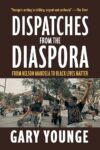The story begins with cats and bears, or in particular the alleged eating of cats by bears in the small town of Grafton, NH. (More on bears and cats in the interview below.) Though there was no evidence other than the testimony of a distraught resident, and plenty of other grounds for skepticism, Matthew Hongoltz-Hetling’s journalistic radar steered him towards this town of roughly 1,300 residents. “Something, it seemed, was emerging from the underbrush to snatch up felines when backs were turned,” he writes in A Libertarian Walks Into a Bear. “If bears were indeed the culprits, Graton was in the midst of an invasion. Or, as I would soon learn, two invasions.”
The second invasion is far less feral, but no less dangerous. It comes in the form of some pioneering libertarians, who in 2004 selected Grafton as the beach head for a broader movement to set up a libertarian paradise free from the nefarious overreach of “statists” (the Free Town Project, which has now morphed into the Free State Project). In contrast to bears, libertarians pride themselves on their logical, unsentimental worldview, placing themselves as far away as possible from beasts of the forest driven by a combination of instinct and appetite. What unfolds is a hell of a story – a rich civics lesson on the balance of freedom and safety, an ecology lesson on the frontier zones between forest and civilization, and a rich set of portraits of people who, despite their eccentricities and the increasingly chaotic circumstances of Grafton life, take seriously the deep existential questions of what makes them happy and gives their life purpose.
Over email I asked Hongoltz-Hetling, who is an award-winning reporter with a great eye for New England, about the importance of place in a digital age, the lessons we can learn from failed utopias, and how science writing can make for good humor writing.

Michael Schapira: I grew up in New Hampshire and, like any region, I feel like we were taught to do lots of essentializing about our neighbors in Vermont, Maine, and the less worthy New England states to the south.
Living in Vermont, is this kind of ethos still present, where people would have certain assumptions about what might happen when reporting a “New Hampshire story,” as opposed to a Vermont or a Maine one? Are the cultures still different enough for these distinctions to make sense?
Matthew Hongoltz-Hetling: What an interesting question, especially coming at this point in history, as we all watch to see whether the Internet will reverse, or accelerate, the ongoing historical grind toward homogenization of all peoples and all cultures. Even though local cultures in NH, VT and other New England states are on the wane, I still see states as sharply defined characters, both real and semi-real. On some level, Vermont remains the arugula-chomping hippie at the farmers’ market, while New Hampshire is still a guy asserting his right to mow the lawn while naked.
Your book is a such a rich portrait of a specific place, but it is also about an ideology (libertarianism) that wants to obliterate distinctions in place, especially as they relate to limits on commerce. As you were writing the book, what kinds of things did you find helpful in satisfying these opposed aspects of the story?
There are multiple appropriate approaches, but in my case, I almost entirely concerned myself with the specific, concrete events and characters I saw in front of me, and was only peripherally interested in the broader ideology of the libertarian movement. Because national perspectives can tend to be both simplified, and just flat out wrong, I tried to let the folks I met tell me how they viewed the world. I often favor this approach, because it prevents the writing from getting too muddy or abstract.
Your book also provides a civics lesson in what follows from a long-standing anti-tax, libertarian friendly ideology (in this case, that of Grafton, NH). In your reporting around the region, do you see any other civics lessons or movements that might shed light on national issues bubbling up?
Like many people, I’ve been very preoccupied lately with the increasing disconnect between people of different political beliefs. Media platforms, particularly digital media platforms, have made both the right and the left defined by the cartoonish fringe. That leads to demonization and moralization, rather than understanding and discussion. Against those trends, we have things like the traditional New England Town Meeting, which involves a face-to-face discussion of actual political decisions among neighbors. America needs to find more places where people are forced to engage in civil discourse with different opinions — otherwise, wacky ideas about imposing utopia can take root too easily.
The book came out of a normal reporting assignment for The Valley News, a daily regional paper in the “upper valley” (a region that spans across the New Hampshire, Vermont border around White River Junction and Lebanon). Can you describe the dynamics of how local regional reporting works now given changes in the industry, and how this kind of reporting prepared you to write this book?
I could talk about this all day. Not to knock national media too much, but local regional reporting is absolutely critical to vast swathes of the country, especially in rural regions that are facing all sorts of practical and political challenges. Studies consistently show that local newspapers and radio stations help to build a sense of community, and result in a better-functioning local government (by discouraging things like nepotism, waste of public funds, and police brutality). Every local newsroom I’ve worked in has felt like it’s in some stage of a financial crisis, and the resultant resource strain has left hard-working reporters and editors struggling to get the job done. Reporters are asked to do more stories, in less time, so the reporting gets thinner — reporters are forced to take shortcuts that are ethically sound, but still leave stones unturned. When researching this book, I was happy to rely on my reporting skills — put simply, the ability to knock on a door, not knowing what kind of a reception I would get, and then conduct an interview that balanced two important interests: that of the newspaper, and that of the community member who had agreed to speak with me.
You have done some science reporting in the past, and that adds a lot to the book (from excursions into behavior changing bacteria to the more extraordinary aspects of bear biology). What were some things that you had to learn along the way to tell the story as you thought fitting of what was going on in Grafton?
Every writing project is an opportunity to learn, and this was certainly no exception. I found myself asking the most bizarre questions — What does a cat taste like? Do people really make decisions, or is free will an illusion? How far away can a bear smell a candy bar? Do parasites make people more likely to engage in bondage sex play? And on and on. One fun detail that stands out for me is that, in order to test the viability of a parasitic infection in bears, scientists threw the heart meat of dead bears into a blender, and then fed it to cats. I had started out doing research about bears eating cats, and suddenly here I was learning about cats eating bears. Science can be funny!
The Free Town project is more or less wrapped up by the end of the book, and the Free State project doesn’t seem like a revolutionary movement in the making (however, they have had successes electing people to local and state office). Covid is a real challenge to hardline libertarians, because it requires coordinated action, and this is not their strong suit. Since finishing the book, has Covid caused you to reflect on certain people or certain aspects of your narrative?
Certainly the Covid crisis has provided an urgent and national example of what I explored in Grafton — the tension between government recommendations, and individual freedoms. People should wear masks, and should not feed wild bears, but to what extent is that a personal decision, and to what extent is that a decision that a community should impose on an individual? In reflection, I see a real misdirect in discussions about these sorts of issues. A person who refuses to wear a mask is often simply asserting their right to refuse. If the dialogue between community and individual had been framed differently, perhaps Grafton would not have seen illegal posses hunting bears, tragic fires consuming lives and historic buildings, or lawsuits over relatively small amounts of taxes.
The book is really funny, despite quite of bit of terror (both bear and libertarian induced) and some real suffering. The Free Towners are utopians and their vision crashed against nature and some stubborn facts about collective living. Did this suggest to you that a humorous tone was needed from the start?
I’ve never really written humor before. But there were so many absurd elements in play, I knew from the get-go that this was a black comedy. And I’m really glad I went in that direction. One critic said they didn’t like the book, because it didn’t treat these very serious issues with enough weight. But I think that, if the goal is to educate the public, making your reporting accessible is really important. And few things are as accessible as humor.
You are very fair to the Free Towners, but one would reasonably come away from the book judging their utopian vision to be a failure. However, in spending so much time with these people, have you been infected at all by the spirit of utopia, and if so, what form does that take?
I’ve always been intrigued by the spirit of utopians– the posh (and fictional) gentlemen living in a jungled, volcanic island in The Twenty-One Balloons, the free loving Oneida community, and the Eurocentric civilizing Fordlandia being just a few examples. They all have a spirit of visionary fun, and an internal logic that make it seem possible to thrive outside of our more mundane world. The struggles of the Free Town Project force me to confront my own fondness for utopian thinking, and realize that imposing artificial constraints on a community is mostly a pipe dream, especially so since a necessary component would be to break off meaningful contact with the outside world. If I could “create my island,” so to speak, I think there would be a lot of exotic animals, steampunk gadgetry, loads of books, endless games for the children, and a chance for each individual to be celebrated. Rules TBD.
Michael Schapira is an Interviews Editor for Full Stop.
This post may contain affiliate links.







